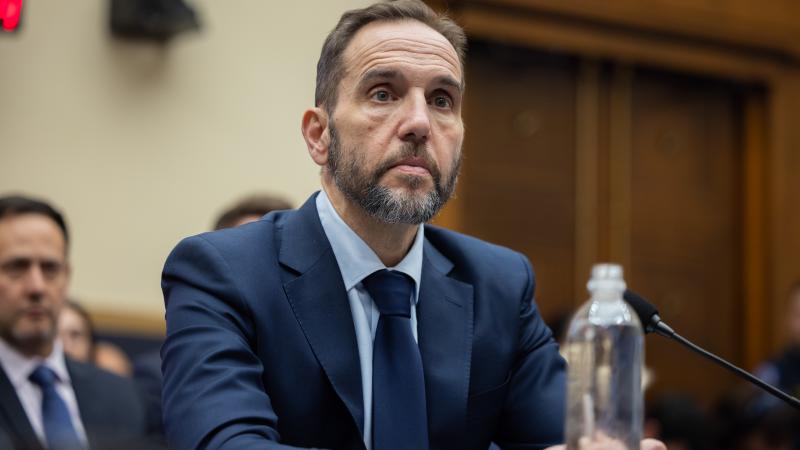North Carolina lawmakers endorse age verification for pornographic websites
HB8 also allows parents of children to sue companies that violate the law by granting a minor access to sexually explicit material.
Approved legislation to require age verification to access pornographic websites in North Carolina may face a legal challenge if it becomes law.
Alamance County Republican Sen. Amy Galey last week successfully amended House Bill 8, initially crafted to establish a computer science graduation requirement, to include the Pornography Age Verification Enforcement Act.
Lawmakers approved HB8 with votes of 102-8 in the House and 47-0 in the Senate last Thursday. The eight no votes came from Democratic Reps. John Autry of Mecklenburg County, Deb Butler of New Hanover County, Pricey Harrison of Guilford, Caleb Rudow of Buncombe, and Allison Dahle, Tim Longest and Julie Von Haefen of Wake County.
“Moms and dads across the state of North Carolina are striving to protect their children from online predators in a number of different ways by monitoring their child’s use, by putting parental controls on their electronics,” Galey said on the Senate floor Thursday. “This will give them another important way where they can work to keep their children safe.”
The legislation would require companies that distribute sexually explicit material to use a commercially available database to verify viewers are 18 years of age or older. Companies are prohibited from retaining identifying information on users, and the bill authorizes users to sue if they don’t.
HB8 also allows parents of children to sue companies that violate the law by granting a minor access to sexually explicit material.
Rep. Neal Jackson, a Republican pastor from Moore County, pointed to research from Common Sense Media that found 15% of teens today were first exposed to online pornography by age 10, and over 73% have viewed the same.
“Parents are doing what they can to protect their children … but children are being preyed on,” he told The Center Square. “This is not the pornography of 20 years ago … this is far more aggressive” and accessible.
Other proponents include the NC Values Coalition, which noted in a statement that “similar legislation in Louisiana has resulted in a reduction in Pornhub’s site traffic by 80%, and in Utah, Mississippi, and Virginia Pornhub has stopped their business entirely because of laws similar to HB8,” referring to one of the top pornography websites.
“This is an important issue for NC Values, and we applaud Senator Galey for taking leadership with this amendment to protect minors from pornography,” Laura Macklem, political director for the NC Values Coalition told The Center Square. “NC Values will be watching to make certain the anti-pornography provision in HB8 is enforced, and we will be there for support in the face of any legal challenges.”
That support could come into play if the bill becomes law, as numerous states that have enacted similar requirements have faced legal challenges. Gov. Roy Cooper can sign the bill, veto it, or allow it to become law without his signature, though he hasn’t indicated which route he’ll go.
The Free Speech Coalition, which bills itself as the trade association for the adult industry, won an injunction against a similar law in Texas. Another coalition lawsuit in Utah was dismissed.
Mike Stabile, the coalition’s director of public affairs, told The Center Square HB8 and others like it “are poorly drafted, political bills that are ineffective and dangerous.” The coalition instead advocates for pre-installed filters on phones and laptops.
“We should all work to prevent minors from accessing adult content, but adults shouldn’t have to give up their online privacy in order to do it,” he said, noting that many adults are unwilling to use age-verification protocols for adult sites.
Stabile says because the bills target adult sites, they “fuel the growth of free and pirated content on social media sites – the very places most kids are stumbling upon adult content.”
Other issues include widespread use of services that encrypt internet traffic among teens, potential censorship of sex education and health content, and free speech and privacy issues that are at the heart of the coalition’s lawsuits. Last year, about two dozen similar bills passed and seven became law, Stabile said.
This year, the coalition is tracking bills impacting the industry in all but 13 states.
“We’ve challenged the laws in Texas, Louisiana and Utah, and are looking at challenges in the rest of the states,” Stabile said.
Jackson said lawmakers in North Carolina are confident HB8 would survive a legal challenge.
Galey, an attorney, “was instrumental in studying the current cases in Texas and some of the other states and crafting the language so we feel like we’re on good legal footing,” he said.
At time of publishing, Galey had not returned a message seeking comment from The Center Square.















